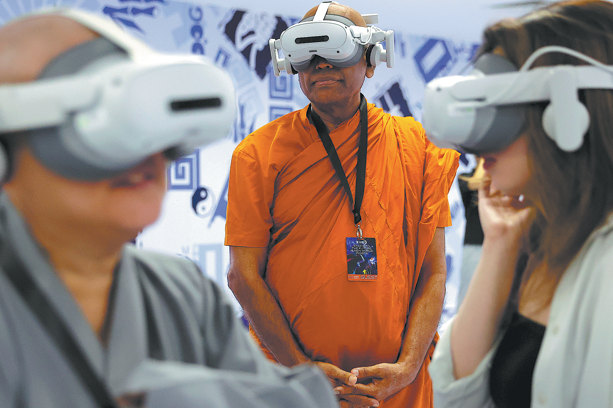Flexible retirement an option for 'aging society'
By Li Jia | chinadaily.com.cn | Updated: 2021-03-01 13:35

That the Ministry of Human Resources and Social Security is working to draw up a plan for delaying retirement has sparked a heated debate. Vice-minister You Jun said on Friday the ministry will widely solicit opinion to make it as acceptable as possible for all.
Delayed retirement means postponing the retirement age, and the advantages of this can be summed up in three ways. It is good for the sustainability of the pension fund system, the stability of the labor supply and the integration of individuals into society to create more wealth.
But given other countries' practices, delayed retirement does not necessarily mitigate the heavy pressure rapid aging imposes on a society.
Take Japan, for example. With the highest proportion of elderly citizens of any country in the world, it increased the normal retirement age from 50 to 65 in four decades, and the number may reach 70 in the near future. However, Japan is still not able to resolve its pension crisis and labor shortage, as well as new challenges such as some young people refusing to pay insurance and being reluctant to marry or have babies.
To deal with aging, one has to take actions. But like Japan, sometimes actions will bring new challenges.
The question then becomes how to prevent postponing retirement age from causing more problems.
First, it is vital to understand the complexity of aging. If a longer life expectancy is the "engine" of an aging society, low fertility rates can be taken as the "accelerator" and internal migration as the "transformer". Aging will affect various areas, including economics, culture and even development strategies. Thus China needs to map out comprehensive long-term policies in line with China's reality.
Further, China will not face a shortage of labor in the near future since it has a nearly 900-million-strong labor force. A big problem in the labor market is the imbalance between supply and demand. Along with the rapid development of digitalization and automation, the mode, channels, standards and incomes for work are all transformed. Many people can still work after retirement.
Therefore, China can establish a more flexible retirement system. For example, the current normal retirement age for men is 60 in China, but the government can allow people to retire as early as 45 and as late as 75, depending on their situation. A more flexible retirement system has four benefits.
First, it ensures the social security system can guarantee people's livelihood. Retirement and pension funds guarantee basic life supports after retirement. It also helps stabilize the social environment and offsets young people's reluctance to pay into pensions.
Second, it offers new options to ease pressures on the pension fund system. The earlier one retires, the less pension money one gets. Thus, flexible retirement won't put more financial pressure on pension funds.
Third, it can restore family function. People who retire early can take care of seniors and minors at home. No matter how advanced elderly care and nursery services become, they cannot replace the family's role in bringing up children and taking care of the aged.
Fourth, those who retire can get reemployed after training. Japan has explored ways to encourage senior citizens to rejoin the job market, including free training, tax preferential policy and pay subsidies. China can and should reform its retirement system more in line with its reality, and better serve its economy and society.
The author is deputy director of the Aging Society Research Center of Pangoal Institution.
























